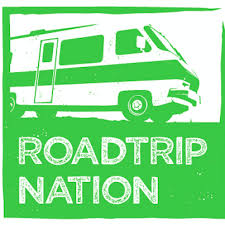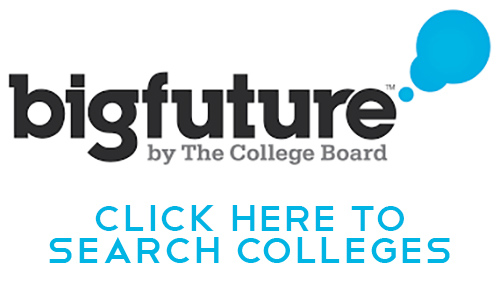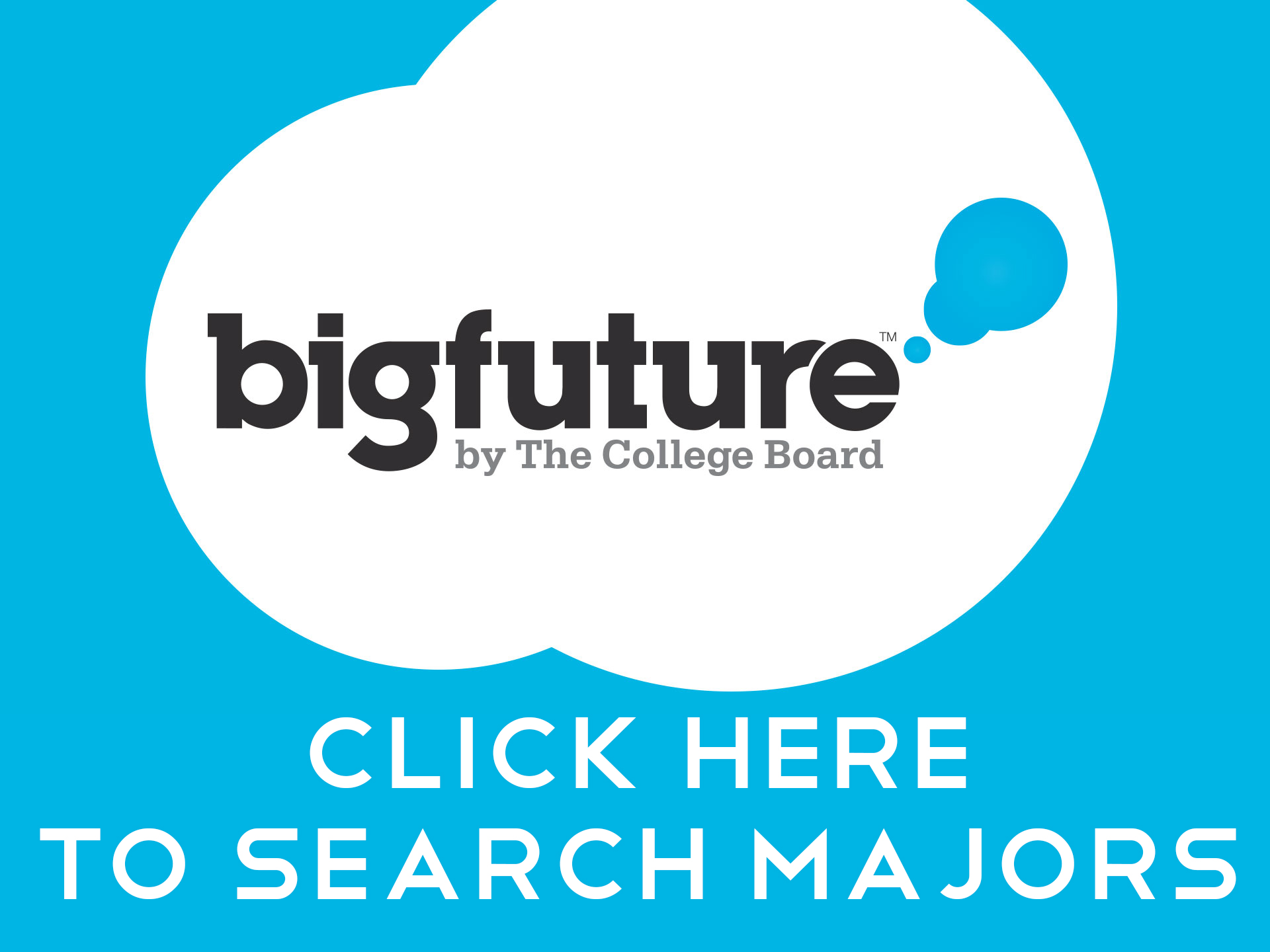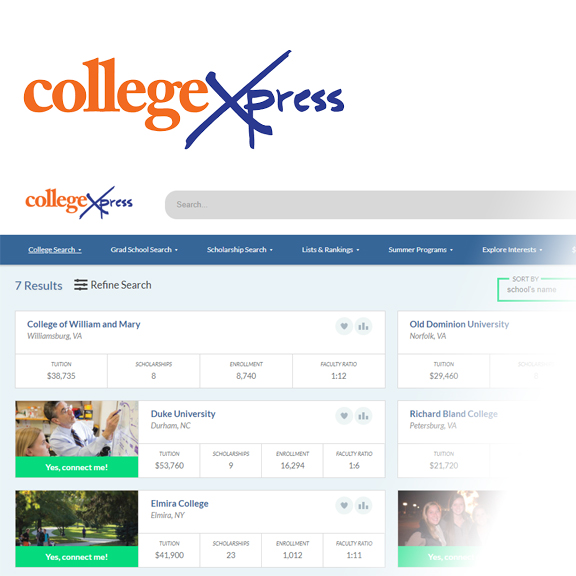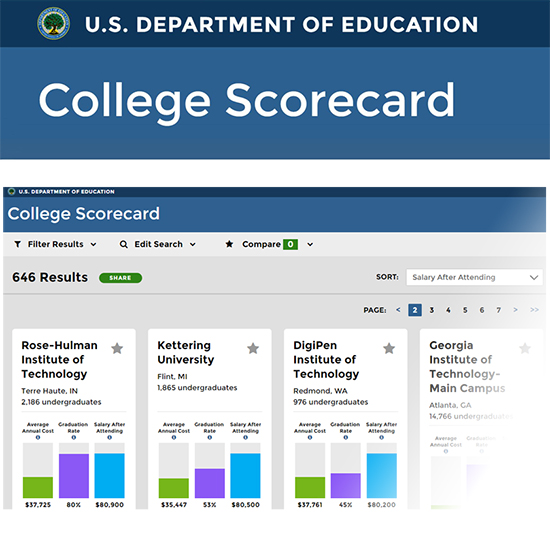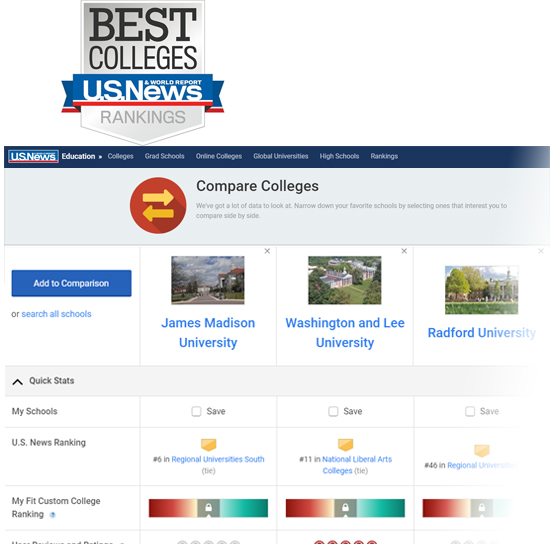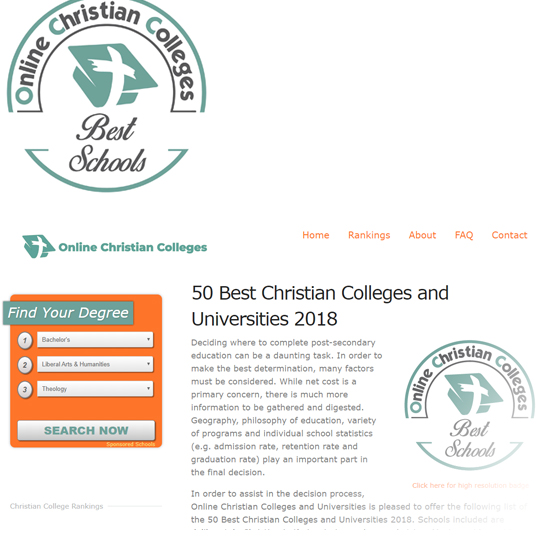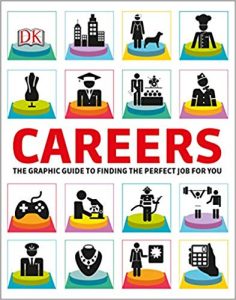College and Career Planning
College and Career Research
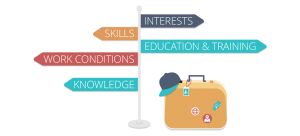 What do you want to do with your life? It's a question that haunts high school students across the country! Here we have provided you with tools to explore all the college options out there, compare between colleges within specific majors, and explore career paths, some of which do not even require a college education!
What do you want to do with your life? It's a question that haunts high school students across the country! Here we have provided you with tools to explore all the college options out there, compare between colleges within specific majors, and explore career paths, some of which do not even require a college education!
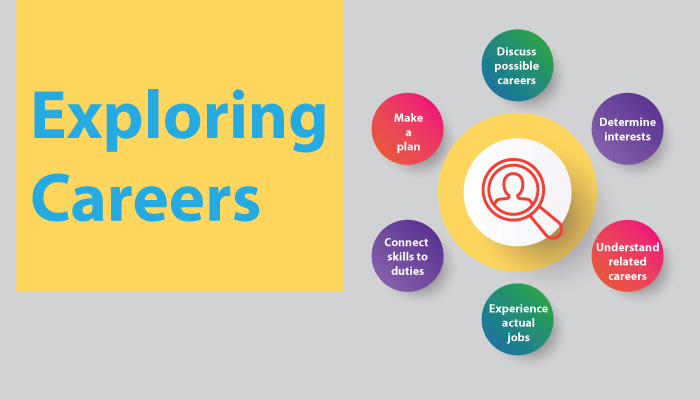
The first step in deciding between colleges, or whether to even attend college at all, is to explore career choices. This section is designed to suggest step-by-step how you could arrive at some possible college majors and/or careers that best suit you.
- Discuss Possible Careers with Your College and Career Counselor
- Determine Your Interests
- Understand Related Careers
- Experience Actual Jobs
- Connect Skills to Job Requirements
- Make a Plan

Discuss possible careers. You may understand what your parents and other adults in life do for a living, and are likely aware of many other popular career choices like doctor, lawyer, educator and accountant. But you may not be aware of the wide variety of jobs currently available or possible in the near future. Here are some discussions you can have with counselors, family members, and friends of family members to learn about a wider variety of careers.
- Seek out less well-known professions as you observe them in daily life.
- Inquire about the jobs held by relatives and friends of relatives. Ask for specifics about job duties instead of taking general descriptors like “I work with computers,” or “He works in an office.”
- Ask acquaintances of your parents more about their careers in casual encounters
- Research job titles and related duties, and ask our college counselor about them. Job websites can indicate the most popular jobs today.
Determine interests. Connect your growing interests with possible careers. One way to do this is through career interest assessments. Some to try:
- RoadTrip Nation from the College Board
- CareerOneStop
- My Next Move
- EducationPlanner
- PrincetonReview Career Quiz

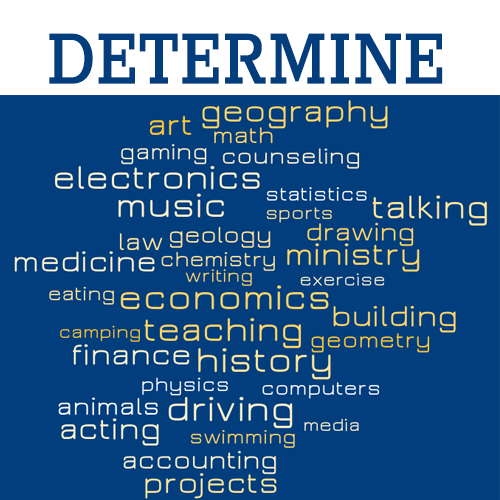

Determine interests. Connect your growing interests with possible careers. One way to do this is through career interest assessments. Some to try:
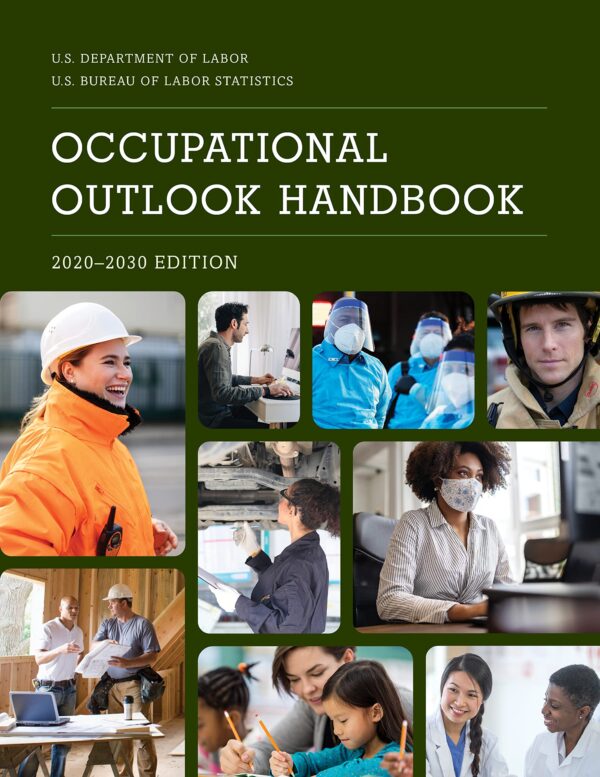
Understand related careers. Once you better understand your current interests and the type of job that you may be interested in, it’s time to look at other related careers. These can be careers within the same field or they may simply share similar characteristics or duties. The U.S. Department of Labor’s Occupational Outlook Handbook may be a good place to start. For each career, it provides:
- Starting and median pay
- Required education, training and work experience
- Current number of jobs
- Job outlook
- Job duties or activities
- Work environment
- State and area data
- Similar occupations
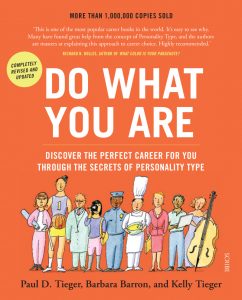 Do What You Are' is another great book that matches personality types to careers that would fit you best. Click the book cover to see how you can purchase it, or visit your local library!
Do What You Are' is another great book that matches personality types to careers that would fit you best. Click the book cover to see how you can purchase it, or visit your local library!
Experience actual jobs. To help you understand whether a particular career would be appealing eight hours a day and five days a week, try to find a way to work with current employees in that field. Adult professionals are often willing to share information with students who express interest in their jobs. Explore careers through:
- Job shadowing
- Volunteering
- Internships
 Informational interviews
Informational interviews- Club activities
- Online research


Experience actual jobs. To help you understand whether a particular career would be appealing eight hours a day and five days a week, try to find a way to work with current employees in that field. Adult professionals are often willing to share information with students who express interest in their jobs. Explore careers through:
- Job shadowing
- Volunteering
- Internships
- Informational interviews
- Club activities
- Online research

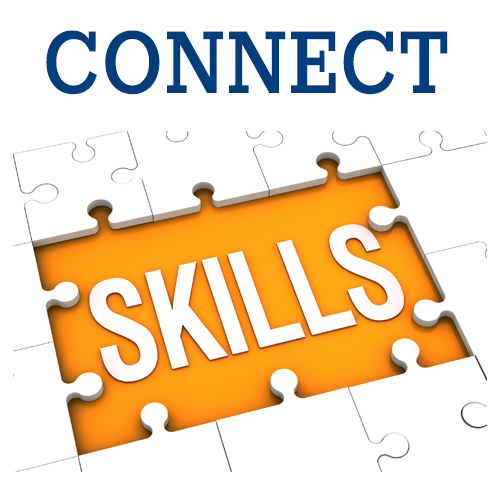
Connect skills to duties. As you narrow down possible careers, you should think about the skills that can be developed now to prepare for those careers. Some skills are industry specific and can be obtained through academic classes or club activities, while others are transferrable to many different fields. Some skills highly prized by employers are:
- Teamwork
- Time management
- Leadership
- Self-motivation
- Decision-making
- Communication
- Interpersonal
Make a plan. With the help of our College Counselor, come up with a flexible and ongoing plan to achieve career goals. The plan can be revisited as your interests develop and other circumstances change. Some concepts to include in the plan are:
- Job outlooks
- Geographical influences
- Entry level and mid-career salaries for related careers
- Cost of the education required to obtain a specific career
- Academic and technical preparation


Make a plan. With the help of our College Counselor, come up with a flexible and ongoing plan to achieve career goals. The plan can be revisited as your interests develop and other circumstances change. Some concepts to include in the plan are:
- Job outlooks
- Geographical influences
- Entry level and mid-career salaries for related careers
- Cost of the education required to obtain a specific career
- Academic and technical preparation
College Search
So you think you know what kind of career you would like to pursue after WCA. If that career involves college, it's time to find the college that not only is a good fit for receiving the education and training for your career path, but fits you as an individual and has characteristics that fit you and your family. Other considerations are budget and available scholarships, athletics programs (if applicable), even dining and extracurriculars. The resources below will hopefully help you narrow down your college search to a few institutions to which you can then apply.
Big Future is run by the College Board and is one of the more comprehensive College Planning Sites on the internet. Big Future can not only assist in your college search, but also helps explore your interests, helps with planning for admissions, financial aid and school loan decisions, and much more.
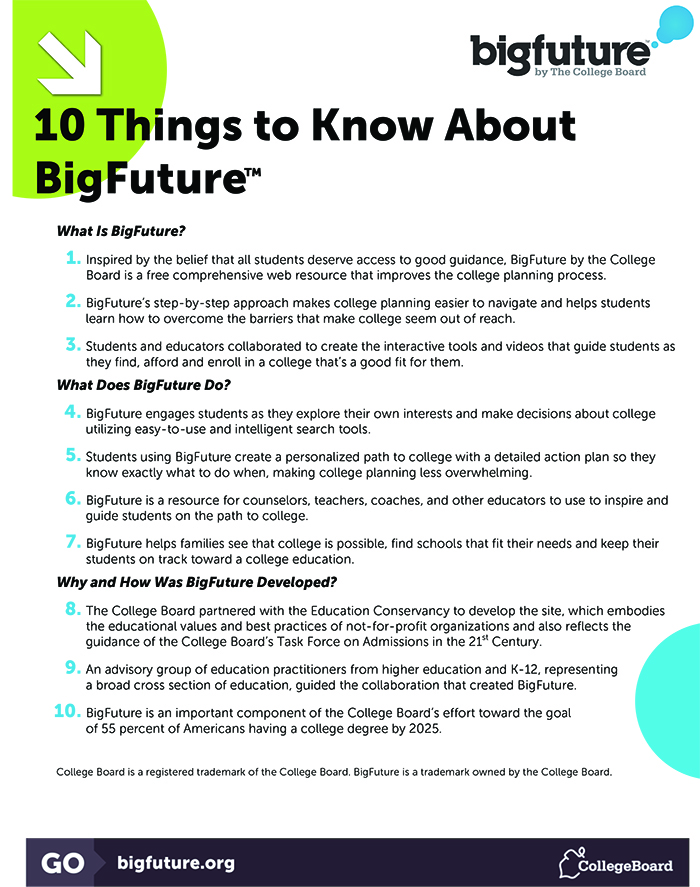
Additional College and Major Search Resources
Sites (click banners to visit):
College Express offers the ability to search college statistics with an easy to read interface, and also have lists and rankings for most national universities. College Xpress also has a very informative College Search Guide covering how to think about your college search, when and how to start it, what to look for in colleges, scheduling campus visits, and factors to consider when compiling your college list.
The Department of Education College Scoreboard is an official site whose goal is to ensure that students and families have the most up-to-date, comprehensive, and reliable information available on colleges, all in an easy-to-understand format. The site allows visitors to sort and filter their search results to easily compare schools and decide which college makes the most sense when considering the typical costs, average student loan amount, students’ ability to repay their loans, and their future earnings.
US News and World Report publishes a Ranking List every year for all major National Universities in a number of categories, such as Liberal Arts, Engineering, etc. Their College Comparison tool is great to line up schools side-by-side to see key stats in an easily viewable format. Some features are restricted to paying premium users, however.
Do you want to continue your college education in a school that stays on track with WCA's Biblical Worldview? Given the perilous moral compass of many post secondary institutions in this age, finding an institution that mirrors your values may be the way to go for you and your family. In compiling this list of the top 30 conservative Christian colleges 2017-2018, Online Christian Colleges looked at church affiliation, college's view of Biblical legitimacy, and whether any coursework in Christianity was required for graduation.
Publications and Books:
Covering more than 400 jobs in fields that range from STEM to sports, arts to administration, finance to farming, Careers is organized in an easy-to-navigate, clear structure that helps guide teen and tween readers. Check at-a-glance summary panels for chosen careers to learn about salary, working hours, training, and career paths. Cross-referenced job matrix tables offer another way to learn about all the options. Tweens and teens with no idea of what kind of job to look for can start with their favorite school subjects or hobbies and find relevant careers from there. It may not be time for your teen or tween to prepare a resume and find a job, but the advice in Careers can help inspire them to start thinking about the future.
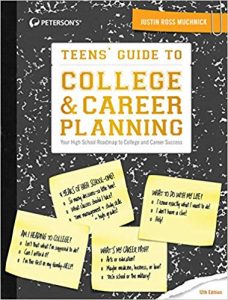 With input from teens, parents, and numerous experts, Teens Guide to College & Career Planning knows just how to talk to high school students about the important decisions involving life after graduation. This easy-to-read guide, with updated content by Justin Ross Muchnick (author of Peterson's The Boarding School Survival Guide), enables busy students to hone in on the right information for them. Whether they're planning to head to a two-year or four-year college, a technical school, an apprenticeship, the military, or directly into the workforce-or even if they are still undecided-Teens' Guide is where they'll find information on the various options available and which ones may best suit their skills, needs, and desires.
With input from teens, parents, and numerous experts, Teens Guide to College & Career Planning knows just how to talk to high school students about the important decisions involving life after graduation. This easy-to-read guide, with updated content by Justin Ross Muchnick (author of Peterson's The Boarding School Survival Guide), enables busy students to hone in on the right information for them. Whether they're planning to head to a two-year or four-year college, a technical school, an apprenticeship, the military, or directly into the workforce-or even if they are still undecided-Teens' Guide is where they'll find information on the various options available and which ones may best suit their skills, needs, and desires.
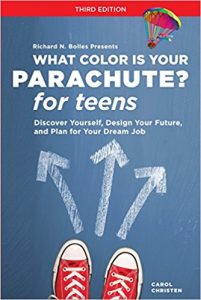 No idea what you want to be? No worries! This fun, rewarding guide draws on the time-tested principles of the career classic What Color Is Your Parachute? to help you discover your passions, skills, and potential college majors and dream jobs.
No idea what you want to be? No worries! This fun, rewarding guide draws on the time-tested principles of the career classic What Color Is Your Parachute? to help you discover your passions, skills, and potential college majors and dream jobs.
Why now? Because when you identify your interests and passions early, you can make informed decisions on what additional schooling (and tuition debt) makes sense for your chosen field.
With fresh updates on the specific challenges of today’s job-market, this new edition features activities and advice on information interviewing, social media, internships, and more. Most importantly, it’s packed with big-picture advice that will set you up to land the job that’s perfect for who you are—and who you want to be.
